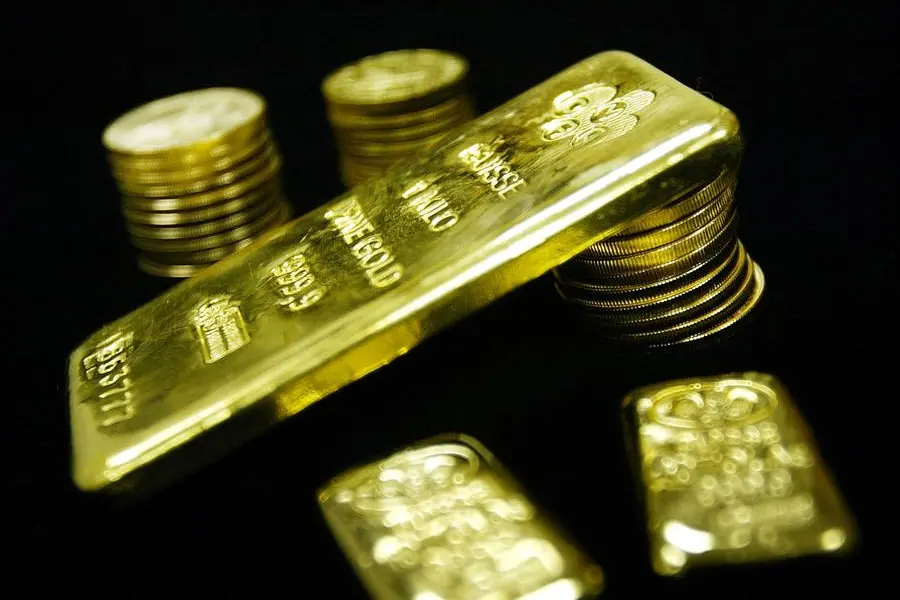PHOTO
The Bank of Tanzania (BoT) has started a large gold-buying initiative as part of a strategic drive to support the expansion of the mining industry and strengthen foreign exchange reserves.
The information was made public by Emmanuel Tutuba, the Governor of the Bank of Tanzania (BoT), during his visit to the Geita Gold Refinery and the Mwanza Precious Metals Refinery Co Ltd.
Under the initiative, BoT has already acquired and refined 418 kilogrammes of gold.“As highlighted in the budget by the Minister for Finance Dr Mwigulu Nchemba, the government has allocated funds for the purchase of gold. This year, our target is to procure six tonnes of gold, both from small-scale, middle-scale, and large-scale miners,” he said.
He also said BoT purchases gold to diversify the country’s foreign exchange reserve and reduce reliance on a single currency.
Read: Tanzania shilling hits all-time low against dollarThis diversification intends to safeguard Tanzania’s wealth against currency devaluation or economic stability caused by global shocks.“Now for the first time, we have both a gold and dollar reserve. Previously, we only had the US dollar as a foreign exchange reserve,” he added.
During recent months, Tanzania just like other economies, has been adversely affected by a decision by America’s Federal Reserve to embark on aggressive rate hikes as a measure to fight domestic inflation in the US economy.
Read: Tanzania inflation now 3.6pc, BoT saysThis has seen various central banks around the world embark on measures that have resulted in a reduction in the amount of dollars in circulation and a steep depreciation of their domestic currencies, resulting in a rise in the prices of imported goods and products, including petroleum.
In Tanzania for instance, the amount in foreign exchange has been going down as the import bill rises.
BoT says in its Monthly Economic Review for August that foreign exchange reserves remained adequate, mainly driven by external loans and grants received by the government, saying however that foreign exchange inflows from exports were fully absorbed by the rising import bill.
BoT says the reserves amounted to $5.247 billion (Tsh13.1 trillion) at the end of July 2023, slightly below the level reached at the end of July 2022, on account of sales in the interbank foreign exchange market to support the importation of goods and services.
The reserves were sufficient to cover about 4.7 months of projected imports which the BoT says were consistent with the country and EAC benchmarks of at least 4 and 4.5 months, respectively.
And in a broader effort to oversee mineral exports and boost the sector’s contribution to the country’s GDP, the government has recently increased its engagement in the mining sector, including strengthening regulations, establishing a national gold reserve, and setting up mineral shops in more than 22 regions across the country.
Read: High commodity prices, import bill hurt Dar’s forex reservesFurthermore, Tutuba outlined BoT’s commitment to boosting exports and enhancing the quality of domestically manufactured goods intended for international markets through the Export Credit Guarantee Scheme.“We are actively engaged in discussions to explore avenues for assisting small-scale miners, enabling them to secure funds, engage in mining operations, and vend their gold to refining facilities. Ultimately, this gold will find its way into the Central Bank’s coffers,” he said.
Tutuba also urged major gold traders to comply with foreign exchange regulations mandating the repatriation of foreign exchange earnings from gold sales back into the country within 90 days.
This compliance would be instrumental in supporting the nation’s economic growth.
Tanzania is home to several large-scale gold miners, including Geita Gold, Bulyanhulu, North Mara, and Buzwagi.
The country also hosts millions of artisans and small-scale miners across the country.
For his part, the Chief Executive Officer of the State Mining Corporation (Stamico) Venance Mwase expressed gratitude to the government for facilitating the establishment of gold refining facilities within Tanzania.
He also emphasised that these facilities would empower the Central Bank to procure and stockpile gold, thus bolstering foreign exchange reserves and fortifying the national economy.“Stamico will collaborate closely with BoT to ensure that small-scale miners gain access to loan guarantees, enabling them to increase gold production and deliver it to our gold refining facility in Mwanza. This initiative will significantly augment the Central Bank’s gold reserves," he stated.
Read: Rwanda, Tanzania bourses ranked among Africa’s top sixThe establishment of the National Gold Reserve was announced by Nchemba during the 2023–24 budget presentation, an initiative by former president, the late John Magufuli.
This decisive step was to address issues in the mining sector and ensure Tanzanians benefit more from its vast natural resources.
Tanzania’s determination to regulate the mining sector arose from allegations of fraud, smuggling, and underreporting of production and profits.
Statistics showed inconsistencies in gold exports and production.
In addition to these developments, BoT’s active participation in the Sixth Mining Technology Exhibition, scheduled from September 20 to September 30, 2023, at Bombambili grounds in Geita, marks a valuable opportunity to strengthen collaboration between the Central Bank and the mining sector in the country. © Copyright 2022 Nation Media Group. All Rights Reserved. Provided by SyndiGate Media Inc. (Syndigate.info).




















